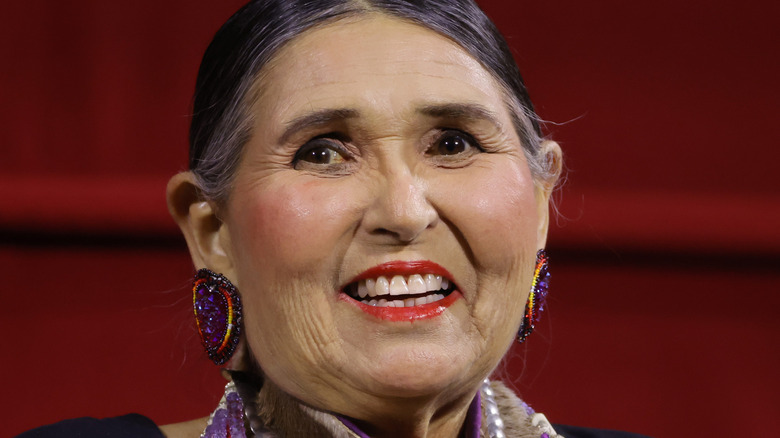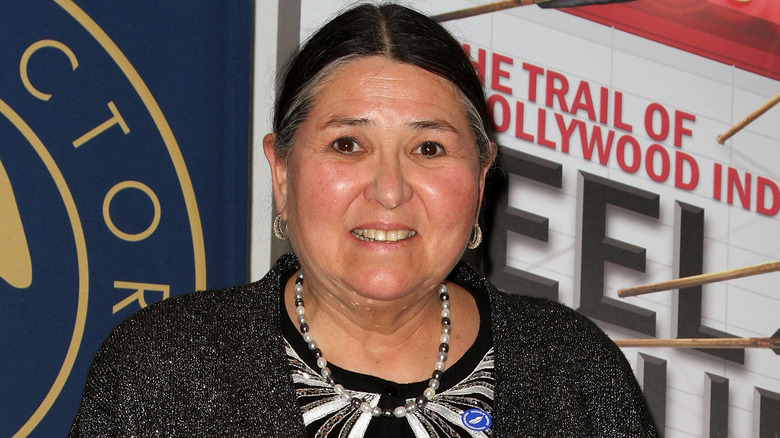The Devastating Death Of Sacheen Littlefeather
Sacheen Littlefeather, Native American rights activist, actor, and close friend of the late Marlon Brando, has died (via The Hollywood Reporter). She passed away around noon on Sunday, October 2, due to breast cancer. Littlefeather was famous for declining Brando's Oscar for his portrayal of Don Vito Corleone in "The Godfather" on his behalf at the 1973 Academy Awards. At the time, she was notably criticized by the media, as well as a few famed Western actors like Clint Eastwood, Charlton Heston, and John Wayne.
As an actor, Littlefeather is known for her roles as Patsy Littlejohn in 1974's "The Trial of Billy Jack," Nenya in 1975's "Johnny Firecloud," Maggie in 1973's "Il Consigliori," and Pale Flower in 1975's "Winterhawk." Although she stepped away from the movie industry soon after, she appeared in a few documentaries in the 21st century, including "Brando," a TV movie documentary about Marlon Brando; "Reel Injun," a documentary on Native American depictions in film over time; "The Invisible Peak," a documentary short about Marin County's Mount Tamalpais; and finally, "Sacheen," a documentary short about the activist herself.
Interestingly, Littlefeather's death comes just two weeks after the Academy of Motion Picture Arts and Sciences held an event in her honor.
Littlefeather received a public apology from the Academy of Motion Picture Arts and Sciences
In June, the Academy of Motion Picture Arts and Sciences issued Sacheen Littlefeather a formal apology for how she was treated at the 1973 Academy Awards, nearly 50 years after the event, and two weeks ago, on September 17, she attended a celebration in her honor at the Academy Museum in Los Angeles. When Littlefeather declined Marlon Brando's Oscar on his behalf, it was due not only to the treatment of Native Americans in film up to that point but also to the protests in and occupation of Wounded Knee, South Dakota.
In a recent conversation with Variety, Littlefeather explained that she felt proud of her actions and that she was able to represent Native Americans on such a public stage. "I was met with the stereotypical tomahawk chop, individuals who called at me, and I ignored all of them. I continued to walk straight ahead with a couple of armed guards beside me, and I held my head high and was proud to be the first Indigenous woman in the history of the Academy Awards to make that political statement," she said.

